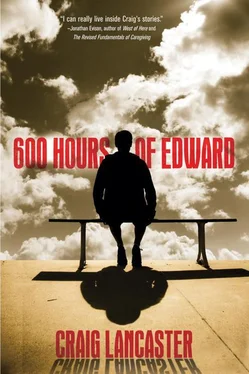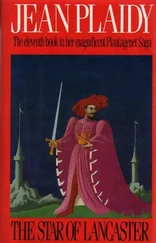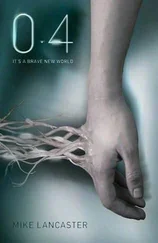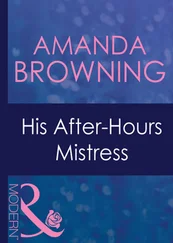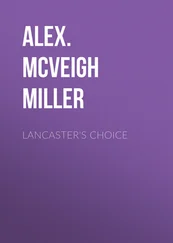Edward, I love you. I am proud of you. I know that life can be challenging for you and that it’s sometimes easier to retreat to a place where no one can intrude on you. I understand that. But you have been a great gift to your mother and me. You are a beautiful, gentle, sweet man, and I am proud to be your father.
You’re the sunshine of my life, Edward, as the song goes. If I never got to tell you when I was alive, I am telling you now.
I love you, son.
Ted Stanton June 7, 2006
R.E.M. is telling me that everybody hurts. I can’t leave the parking lot. I can’t see.
– • –
I’m home at 1:08—I stayed in the law firm’s parking lot for nearly a half hour, crying and listening to R.E.M. and reading and rereading my father’s letter. I dig around in the refrigerator, but there’s little to eat, since I threw out all my food, a decision that I continue to regret. I retreat to the kitchen table and sort through the surprisingly voluminous (I love the word “voluminous”) amount of mail that I brought in after I returned home.
It’s mostly advertisements—and a box from Amazon.com, which flummoxes me, until I remember ordering that book He’s Just Not That Into You , which is of little use to me now. One other letter catches my eye. It has the Billings Herald-Gleaner ’s logo on the return address.
I tear it open.
Dear Edward,
I was very sorry to read of your father’s passing. He was a good man, and I know how much he cared about you. He’ll be missed by a lot of people.
I’ve been meaning to drop you a line for a while now, but things have been so busy. When I saw the unfortunate news about your father, I decided that I shouldn’t leave this undone any longer.
I’d like you to give me a call here at the Billings Herald-Gleaner so we can set up a time to chat. You can reach me at 657-1315. I retired from West last year and took a job here as the operations director. It’s a lot different than teaching high school shop, but I like it so far.
Anyway, we can talk about my big move and what’s going on with you after you call. Please do, Edward. I’m looking forward to hearing from you.
Best wishes, Nathan Withers
Apprehensively, I dial the number in Mr. Withers’s note.
“ Herald-Gleaner , Withers.”
“Mr. Withers, it’s Edward Stanton.”
“Edward, my boy. How are you?”
“Fine.”
“Glad to hear it, glad to hear it. Edward, I was stunned to hear about your dad. How are you holding up?”
“OK, I guess.”
“It’s hard. You live long enough, it happens. Both of my parents are gone.”
“I’m sorry.”
“Ah, it’s OK. Happened a long time ago. That’s the nice thing, Edward. It doesn’t hurt forever. Eventually, you just remember the good things. That’s comforting.”
“That sounds nice.”
“So you got my letter, then. I want you to come see me, Edward.”
“When?”
“When is good for you?”
“I’m busy tomorrow, and I’m helping my mother Wednesday.”
“How about Thursday, then? Ten a.m.? Will that work?”
“Yes.”
“Good, Edward, good. I’m looking forward to seeing you.”
“Yes. Why do you want to see me?”
“Let’s talk about that when you get here. I’ll see you at ten a.m. Thursday, OK?”
“Yes.”
“Good, good. Take care, my boy.”
– • –
Tonight’s episode of Dragnet , the fourteenth of the first season of color episodes, is called “The Subscription Racket,” and it’s one of my favorites.
In this one, which originally aired on April 20, 1967, Sergeant Joe Friday and Officer Bill Gannon are investigating a ring of young people who pose as students and fraudulently sell magazine subscriptions door-to-door by telling potential customers that the money will go for good causes rather than telling them the truth: the money will go into their pockets.
Sergeant Joe Friday and Officer Bill Gannon eventually arrest a young couple who are engaging in fraud—the young woman by changing the dollar amount on a check and the young man by using the Medal of Honor his father posthumously won and passing it off as his own. Sergeant Joe Friday takes a dim view of this.
The young man declares that his father gave his life for the medal. And Sergeant Joe Friday says that the young man will have to give up a little of his own life for using it. Sergeant Joe Friday seems to think that the young man’s father would not be proud. I’m glad my father was proud of me.
– • –
Enough of my letters are turning out to not be complaints that I ought to rethink my description of them. I now have a large collection of complaint letters and a smaller collection of letters of regret, letters of pleading, and now, tonight, a letter of awe and thanks. I prepare a new green office folder for this one.
Michael Stipe:
One of your songs made me cry today. I don’t like to cry, but I seem to be doing a lot of it lately, and to be honest, I think I would feel worse if I didn’t cry. Also, to be fair, it wasn’t just your song that made me cry. My father’s letter made me cry, too.
I don’t know how it is that you write songs that seem to sum up how I’m feeling. It’s not because you know me; you don’t. But you have a talent for it, and I want you to know that I’ve noticed.
“Everybody Hurts” is the perfect song to describe how I am feeling these days. I do feel like I am alone sometimes. But as you rightly point out, I am not alone. I have my mother. And I have a memory of my father that is a happy one.
Thank you, Michael Stipe, for writing such perfect songs.
I am, as ever, your fan, Edward Stanton
This morning, I sit calmly in Dr. Buckley’s waiting room, the soft sounds of string music washing over me. I have rearranged Dr. Buckley’s magazines; it wasn’t so hard. I have hope—that word again—that perhaps Dr. Buckley’s other patients are starting to care a bit more about maintaining order around here.
I awoke again at 7:38 a.m., the 227th time this year (because it’s a leap year). For one of the few times in recent weeks, I slept soundly and dreamlessly. Well, that’s not true: Nobody sleeps dreamlessly. But I don’t remember any dreams, and that’s nearly the same thing.
Today is the fifth full day without my father, and I don’t feel quite so badly about that as I did yesterday or the day before. I wish he were here, of course, especially now that I know he isn’t ashamed of me. But I also feel like it’s all going to be OK. I can’t explain this feeling. It is not based in fact, but rather in emotion. I prefer facts, but I don’t mind this emotion. Perhaps Dr. Buckley will have some ideas about all of this. I find emotions difficult to explain.
Perhaps Dr. Buckley will have some ideas about Donna Middleton, too, because I have none. I wish I did.
I’ll know soon enough. Dr. Buckley just ushered a man out of her office—the one I barreled into last week—and is signaling me to come in.
The man scowls at me as we cross paths.
“I’m sorry,” I say.
– • –
“Edward,” Dr. Buckley says, taking her seat. “How are you doing today?”
“I’m doing well.”
“That’s good. Again, I’m so sorry about your father. How is your mother?”
“I think she’s going to be OK.”
“And you?”
“I think I’m going to be OK, too. I feel…Well, it’s hard to explain.”
“Give it a try.”
“My father wrote me a letter. His lawyer gave it to me yesterday.”
“Oh?”
“But it’s not like the other letters I’ve gotten from the lawyer. My father told me in this letter that he’s proud of me and that he loves me. He apologized to me. I…Dr. Buckley, would you like to read the letter?”
Читать дальше
